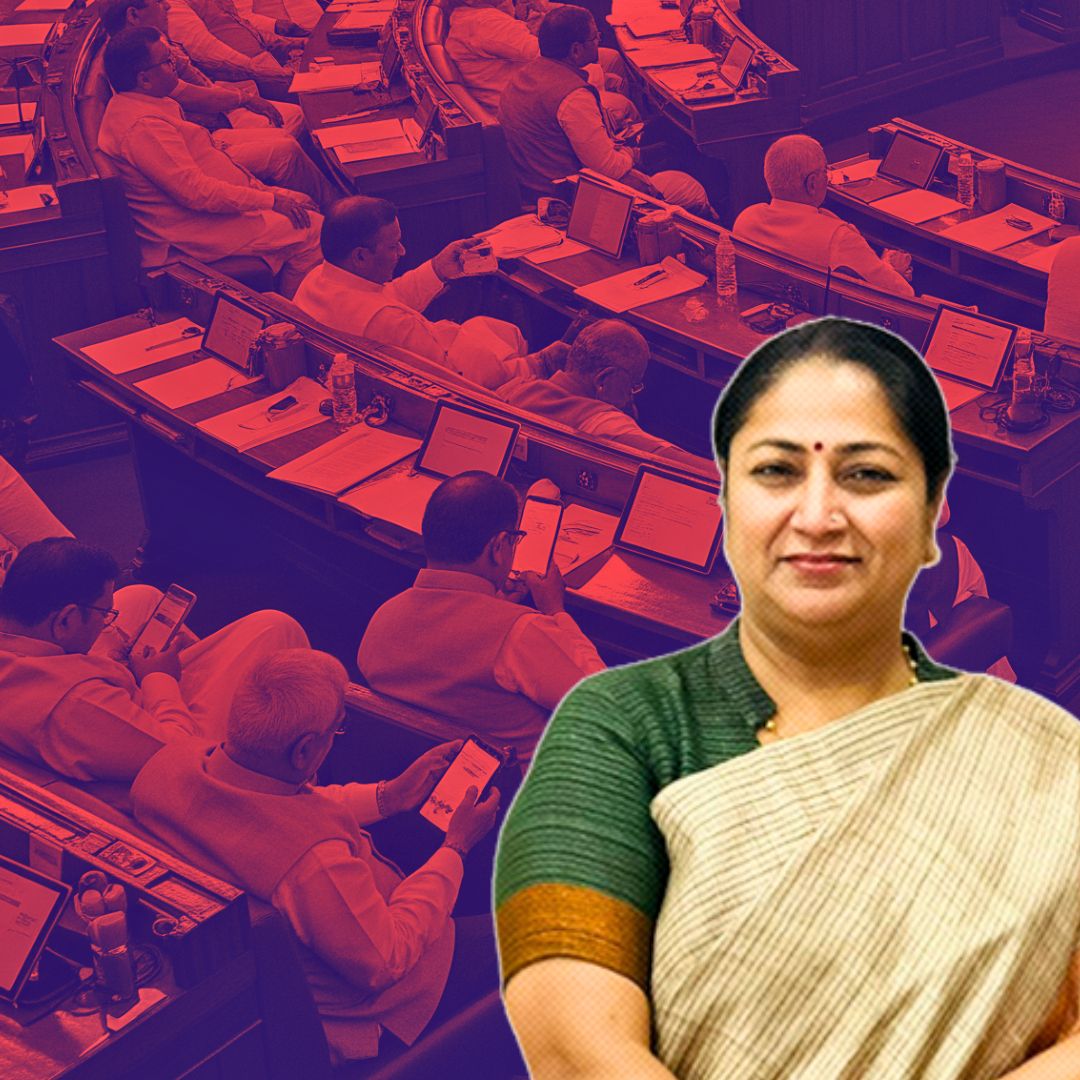All 70 Delhi Assembly MLAs, including Chief Minister Rekha Gupta, have been issued the brand-new iPhone 16 Pro smartphones as part of the government’s move towards a paperless legislature under the National e-Vidhan Application (NeVA) project. This initiative supports the Central government’s vision of “One Nation, One Application,” aiming to digitise legislative workflows to boost efficiency, accessibility, and environmental sustainability.
Along with iPhones, MLAs were also provided with iPads and tablets, having undergone training on this digital interface ahead of the Monsoon Session where the rollout was announced. The Delhi Assembly further made history by becoming the first in India to be fully powered by a 500-kilowatt rooftop solar power plant.
Digital Transformation to a Paperless Legislature
According to The Indian Express, the introduction of the iPhone 16 Pro and supporting tablets coincided with the full implementation of the NeVA platform at the Monsoon Session. Developed under the Centre’s “One Nation, One Application” initiative, NeVA offers real-time access to legislative documents on iPads, multilingual support, and smart delegate units with microphones and voting panels.
The system uses RFID/NFC technology for secure access and runs on a power-backed network ensuring uninterrupted functioning. The shift marks a significant technological transformation designed to eliminate paper usage, streamline legislative proceedings, and improve legislative member engagement.
Chief Minister Rekha Gupta praised the simultaneous launch of the solar power plant and digital upgrade as milestones towards enhancing institutional accountability and fostering environmental responsibility.
However, this high-end device distribution has sparked political debate over budgetary expenditure and device choice.
Background, Controversies, and Broader Context
The NeVA initiative reflects a nationwide governmental push to digitise legislative processes, reducing paper consumption and promoting sustainability. So far, 19 out of 28 State and Union Territory legislatures have transitioned into fully digital Vidhan Sabhas using NeVA, funded centrally at an outlay of Rs 673.94 crore.
Delhi’s Assembly has also revised reimbursement ceilings for mobile phone purchases, setting the limit at Rs 1.5 lakh for the Chief Minister and Rs 1.25 lakh for ministers, up from Rs 50,000 last revised in 2013, enabling the procurement of high-end devices like the iPhone 16 Pro.
This financial decision drew criticism from opposition parties, sparking a political debate about government spending priorities amid the benefits touted for legislative efficiency and environmental goals. The assembly’s pioneering switch to solar energy further emphasizes the government’s commitment to sustainable governance.
The Logical Indian’s Perspective
The integration of cutting-edge digital tools along with renewable energy in the Delhi Assembly signifies a commendable stride towards transparent, efficient, and eco-conscious governance. Such initiatives can enhance democratic participation by improving legislative accessibility and reducing environmental impact.
However, balancing technological advancement with fiscal prudence and inclusivity is essential to ensure broad acceptance and dialogue across diverse political and social voices. As legislatures increasingly embrace digital transformations, it is vital to question how these innovations can be harnessed to strengthen democracy without escalating costs or alienating stakeholders.
ऐतिहासिक क्षण की साक्षी बनी दिल्ली विधानसभा।
— Vijender Gupta (@Gupta_vijender) August 3, 2025
नेशनल ई-विधान एप्लिकेशन (NeVA) का हुआ सफल ट्रायल रन संपन्न।@DelhiAssembly pic.twitter.com/Lnoz90xrOs












